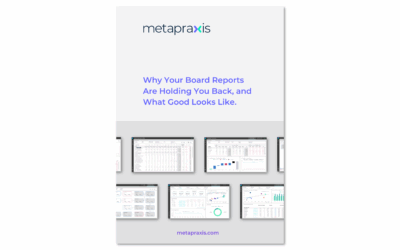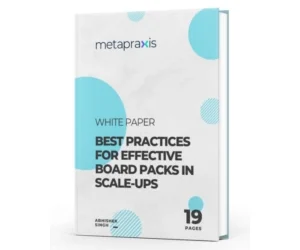FP&A
Know Your Excel Limitations: Unlocking the Full Potential of FP&A
In the world of FP&A, it’s crucial to discern when to leverage the flexibility of spreadsheets and when to transition to a dedicated and dependable system

Spreadsheets have long been the trusted companions of finance professionals, serving as the canvas where the first strokes of financial planning and analysis (FP&A) are drawn. Their flexibility and familiarity make them ideal for crafting initial calculations and processes. However, as FP&A evolves and reports transform from one-time projects to vital organizational assets, it’s crucial to recognize the limitations of spreadsheets in this context.
Spreadsheets are like a creative laboratory, where financial ideas are conceived and tested, much like building a prototype. They excel in this developmental stage, offering freedom and adaptability. But when reports become essential, recurring products demanded by the organization on a regular basis, a new home is needed. Aspace that offers the security, robustness, and collaborative functionality required for dependable and efficient production.
The Journey to an Intelligence Processing System (IPS)
That new home is an Intelligence Processing System (IPS), a haven embraced by forward-thinking FP&A teams. Transitioning reports to an IPS enables earlier production at a lower cost and significantly higher quality. It’s the logical step for those who recognize that spreadsheets, while essential for creative FP&A endeavours, have their limitations when it comes to routine report production and one true version of the truth.
In the realm of FP&A, it’s about knowing when to harness the flexibility of spreadsheets and when to graduate to a fit-for-purpose, reliable system. By making this transition, you ensure that your reports are not just created but produced with consistent quality, efficiency, and security. It’s time to unlock the full potential of your FP&A by knowing your Excel limitations and embracing the future of intelligent reporting.
Key Takeaways:
- Spreadsheets are invaluable tools for the creative and developmental stages of financial planning and analysis (FP&A), offering flexibility and adaptability for initial calculations and processes.
- As FP&A evolves and reports become essential organizational assets, it’s crucial to recognize the limitations of spreadsheets in routine report production.
- Think of spreadsheets as the creative laboratory, perfect for crafting prototypes and testing financial ideas.
- To meet the demands of routine report production, transition to an Intelligence Processing System (IPS).
- Moving reports to an IPS enables earlier production at a lower cost and significantly higher quality.
- Embracing specialized systems like an IPS ensures that your reports are produced with consistent quality, efficiency, and security.
- It’s time to unlock the full potential of your FP&A by knowing when to harness the flexibility of spreadsheets and when to graduate to a fit-for-purpose, reliable system like an IPS for intelligent reporting.
Whatever your FP&A journey, it’s essential to make informed decisions regarding your tools and systems. To dive deeper into the ‘Excel Dilemma’ and explore more insights, check out our dedicated blog on the topic. We’re here to assist you on your journey – don’t hesitate to get in touch. We’d love to learn more about your current systems and processes, and we’re more than happy to offer guidance on enhancing your efficiency.

Mark Martin
Business Development UK
Business Development Specialist
Latest Posts
What Good Board Reporting Really Looks Like
WHITEPAPER Board reporting white paper Most board reports look back, not forward. This white paper reveals how to transform reporting into a source of foresight, alignment, and commercial insight, so leadership teams can act before risks become losses."You can’t scale...
Best Practices for Effective Board Packs in Scale‑Ups
EBOOKS Scale-Ups Best Practices Empower your board and leadership team with proven strategies to streamline board reporting, focus on decision-critical insights, and align every meeting with strategic goals. Perfect for scale-ups looking to improve governance,...
Don’t Persist with Excel: Knowing When to Move On
FP&A Don't Persist with Excel: Knowing When to Move On Excel is a powerful tool—no doubt about it. It's often our go-to for managing data, creating reports, and analysing numbers. However, there comes a point where persisting with Excel becomes counterproductive....





